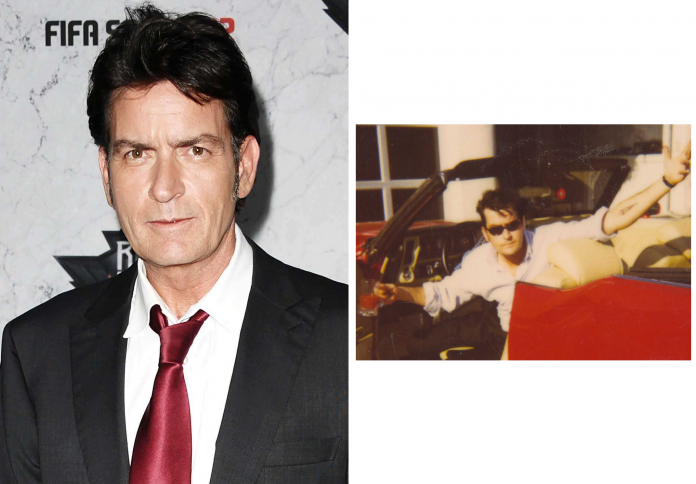Actor Charlie Sheen, currently in a public period of reflection and accountability, recently sought to clarify widespread misunderstandings that arose from revelations about his past sexual encounters with men. The candid disclosure was a key feature of his memoir, The Book of Sheen, and his Netflix docuseries, aka Charlie Sheen, both released last month. Sheen’s characteristically frank comments had led to intense speculation and a common public assumption about the nature of those experiences. However, appearing on the In Depth With Graham Bensinger podcast, the actor insisted that the encounters were “not full-fledged” or as “graphic” as people might assume. While clarifying the details, Sheen was adamant that his motivation was not driven by “shame,” but rather a desire to refine the broad, often misleading, categorizations of human sexuality. This move is part of a broader commitment by Sheen to honesty and to prevent his past from continuing to “own” him.
The Misconception of the “Graphic” Encounter
Charlie Sheen’s recent admissions about his sexual encounters with men, published during a turbulent and highly public chapter of his life, led to a “widespread misperception” that he is now determined to correct. He noted that the term “sex with men” immediately defaults to a very specific, and often graphic, image in the public consciousness, which does not accurately reflect his personal history.
:max_bytes(150000):strip_icc():format(webp)/aka-charlie-sheen-02-091125-208c1a4ae4cd447f9a4bf23009297fde.jpg)
Sheen addressed this directly, stating that when people hear the phrase, they “immediately think of, like, butt sex. Sorry to be graphic, but that’s kind of where the mind goes, right?” He quickly countered that this assumption was incorrect, insisting that “it wasn’t that” and, more broadly, that the experiences were “not full-fledged.” The actor compared the brief nature of the encounters to the common, if cliché, idea of “experiment[ing] in college,” though he joked that since he never attended college, “maybe that explains it.” His clarification aims to inject nuance into an aspect of his life that has been oversimplified and sensationalized by the media.
Motivated by Clarity, Not Shame or Regret
Crucially, Charlie Sheen went to lengths to emphasize that his current desire to clarify the details of his past is not born out of shame, regret, or a desire to retract his statements. Instead, it is a pursuit of accuracy in the face of public generalization and broad categorization.
He insisted that his motive is not to imply judgment on any form of sexual expression, but to accurately portray his own history. Sheen summarized his reasoning by stating: “It’s not a shame thing. It’s just kind of like a, ‘Huh, [sex with men] is a bit of a broad category.'” This distinction is essential to his current public narrative, which he has characterized as his “transparency and accountability era.” Sheen initially felt that revealing these sexual encounters was “f—ing liberating,” as it was another step toward confronting his turbulent past without allowing it to control his present.
The Current Era of Accountability
Sheen’s recent revelations—both the honest admissions and the subsequent clarifications—are part of a comprehensive public and personal effort to address the chaotic period of his life that dominated headlines for years. This era began with significant professional and personal challenges that forced him into the public eye.
His termination from Two and a Half Men in 2011, following an unsuccessful contract negotiation and issues with substance abuse, brought his private life to the forefront. This was compounded by his 2015 public revelation that he had been diagnosed as HIV positive in 2011. Now, Sheen is making amends and seeking reconciliation. His docuseries, aka Charlie Sheen, detailed his efforts to reconnect with those he left behind, including reaching out to his former Two and a Half Men co-star, Jon Cryer, to initiate conversations and begin repairing their relationship.
Life Beyond the Tabloids
The actor’s efforts to clarify his sexual history demonstrate a desire to move past the sensationalism that has often overshadowed his career. By addressing the topic directly, he seeks to neutralize the power that vague or assumed details hold over his public image.
Sheen, who first rose to prominence in the mid-1980s with films like Platoon and Wall Street before becoming a highly successful television star, understands the media’s relentless focus on his personal life. His candidness serves as a shield against speculation. His attitude upon first going public was defiant and clear: he was not going to “run from my past, or let it own me.” His latest clarification, therefore, is not a retreat, but a measured step towards owning the narrative entirely and focusing his attention on his recovery and his future career.










